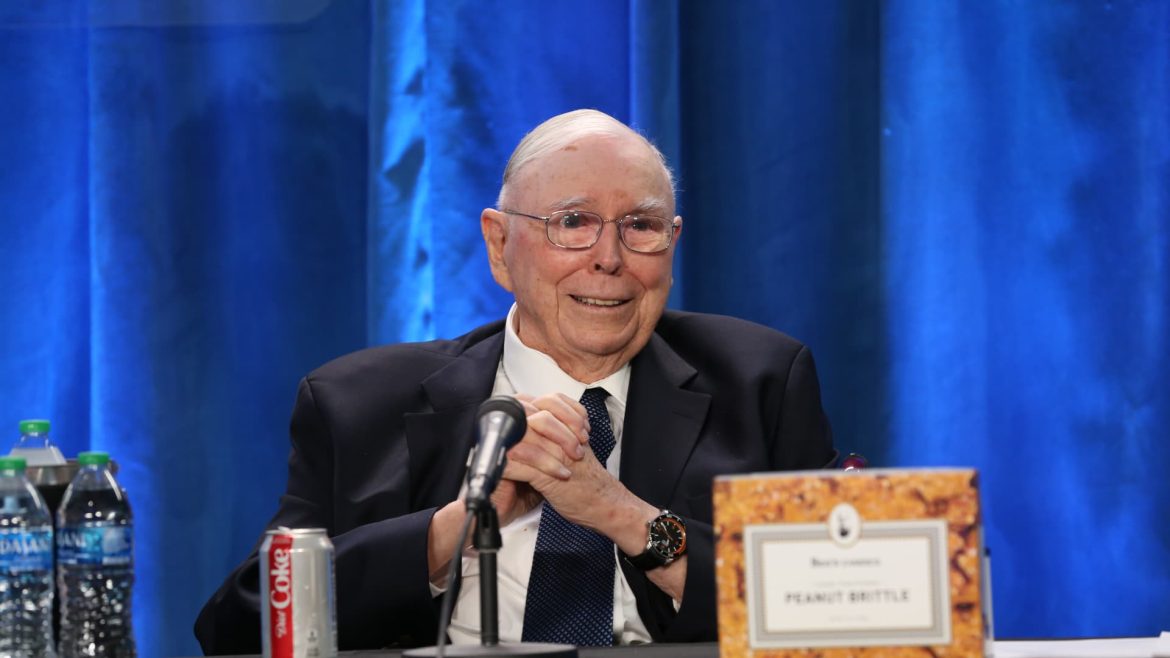Charlie Munger’s Investment Wisdom: A Different Perspective
The Late Charlie Munger, the renowned investment icon, had an unconventional view. He believed that Berkshire Hathaway, the conglomerate he built with Warren Buffett, could have doubled its value if they applied leverage, borrowing money, when purchasing businesses and common stocks. In a previously unaired interview on CNBC’s special “Charlie Munger: A Life of Wit and Wisdom,” which aired on Thursday, Munger stressed that they almost never used this common Wall Street practice because they always put their shareholders first. He said, “Berkshire could easily be worth twice what it is now. And the extra risk you would’ve taken would’ve been practically nothing. All we had to do is just use a little more leverage that was easily available.”
A Different Approach
Unlike prevailing practices on Wall Street, Munger and Buffett were reluctant to use leverage, despite its potential for enhancing returns. The reason for their caution lay in the fear of disappointing those who had trusted them when they were young. Munger explained, “If we lost three quarters of our money, we were still very rich. That wasn’t true of every shareholder.” Their deep sense of responsibility towards their shareholders prevented them from taking on this additional risk.
Beware an ‘unsettled mind’
Warren Buffett, often referred to as the “Oracle of Omaha,” had previously explained the perils of using leverage to purchase stocks. He warned that it could lead to short-sighted and panicky decision-making during volatile times. Buffett wrote in his 2017 annual letter to shareholders, “There is simply no telling how far stocks can fall in a short period. Even if your borrowings are small and your positions aren’t immediately threatened by the plunging market, your mind may well become rattled by scary headlines and breathless commentary. And an unsettled mind will not make good decisions.”
A Prudent Approach
Munger and Buffett adopted a cautious approach toward handling their shareholders’ money over the years. Berkshire shareholders tend to be long-term investors, treating their stock like a savings account. Munger acknowledged that they could have made more money if they had owned Berkshire without shareholders, as they would have used more leverage.
Insurance Float
However, Munger noted that Berkshire did utilize leverage in the form of its insurance float. Insurance float refers to the funds received from premiums upfront and used for investment before paying out claims later. Munger explained, “Insurance float gave us some leverage. That’s why we went into it.”
In conclusion, Charlie Munger and Warren Buffett’s approach was characterized by a profound sense of responsibility towards their shareholders, placing their interests ahead of potential financial gains, and exemplifying the virtues of prudence and foresight in their investment decisions.
